Your cart is currently empty!
My Favorite Website from the “Another 50 Websites” webinar
I just gave my 3rd “50 Websites Every Genealogist Should Know” Legacy webinar. It’s always a fun webinar to present. If I’m lucky, I even get to hear how the websites help participants with their own research. As I create each of those "50" presentations, I purposely try to find websites that are not as well-known so that, hopefully, there is something for everyone.
As I do for every webinar, I include quite a few websites that I don’t just use, I love. I love them not because they necessarily help me make a discovery about any one particular ancestor. Instead, I love them for the information they help me find, whether personal or historical.
I’ll let you in on a secret from my latest webinar. I like quite a few of the websites I discussed but the one I’ve been most excited to work with was Open Access Theses and Dissertations.
Did the inclusion of an index of academic theses and dissertations surprise you? Let me explain why a thesis and dissertation website is important to genealogical research. Theses, dissertations, and other academic writings are compiled by historians and others who are studying a question or a problem in great detail. They state a problem or question, they give their hypothesis, and then they write page upon page about what they found. These students conduct exhaustive research in books, periodicals, online databases to come up with their evidence. They write about people, places, activities, and events. In short, theses and dissertations can be valuable resources for family historians because they contain information that can be helpful in our own research and understanding of our family history.
In the past, one of the reasons researchers didn’t take advantage of academic writings is that they can be difficult to access. Institutional subscription websites have them but those of us not in an academic community did not have access to those websites. That’s why Open Access Theses and Dissertations is a game-changer.
Open Access
Before we look at the website you may be asking what does “open access” mean? According to OATD’s FAQ page, the term means “free to access and read online.” So it simply means you can find it online and download it for free, without going through a subscription website.
So what is OATD? Their FAQ’s state that it is an “ index of over 3.5 million electronic theses and dissertations.” A quick search on the term “genealogy”* resulted in works from students at universities in various countries including:
- University of Michigan
- Universidad Nacional de Colombia
- University of Glasgow
- University of São Paulo
- University of British Columbia
- University of Toronto
- Ohio State University
- Columbia University
- University of California – Berkeley
- University of Melbourne
- University of Cambridge
- University of Texas – Austin
- Universidade do Rio Grande do Sul
Let me show you some initial searches of the index I did to find some genealogically relevant theses and dissertations.
One of my ancestral families lived in the Mexican Mormon colonies in the very early 20th century. I searched on the keyword phrase “Mormons in Mexico” and located a 1950 University of Arizona work titled the Mormon colonies in Chihuahua after the 1912 exodus .
I’m always interested in women homesteaders since my great-great-grandmother was one. A search on that phrase brought up the following results.
A few of these works have promising information for those researching their genealogy. While the state I’m interested in is not represented here, I can still learn more about that homesteading experience by reading these. And the added benefit is there will be a bibliography that is sure to have items that would be useful to my research.
Just like with any search conducted online, you may receive too many results will need to narrow those. A search on the phrase “Canadian immigration” had over 850 results. I’m really only interested in historical immigration so I went ahead and narrowed my result by the History department. That narrowed my result down to 42 hits. That resulted in hits that were more relevant to my research and easier to go through.
Theses and Dissertations? Yes!
As I continue to search on various keyword phrases, I find all kinds of writings that have genealogical significance such as Married Women, Crime, and Questions of Liability in England, 1640-1760 ; Reforming the married state: women and property after the Married Women's Property Acts, 1870-1935 ; and Shore Wives: The Lives of British Naval Officers’ Wives and Widows, 1750-1815, so many interesting topics to explore.
I’m really excited to start exploring this index. I hope this gives you some ideas for your research. Let me know what you find in the comments below.
- Just a note about searching on the term "genealogy." That term means much more than family history so your results will include many results that are not relevent to your family history research.
Gena Philibert-Ortega is an author, instructor, and researcher. She blogs at Gena's Genealogy and Food.Family.Ephemera. You can find her presentations on the Legacy Family Tree Webinars website.

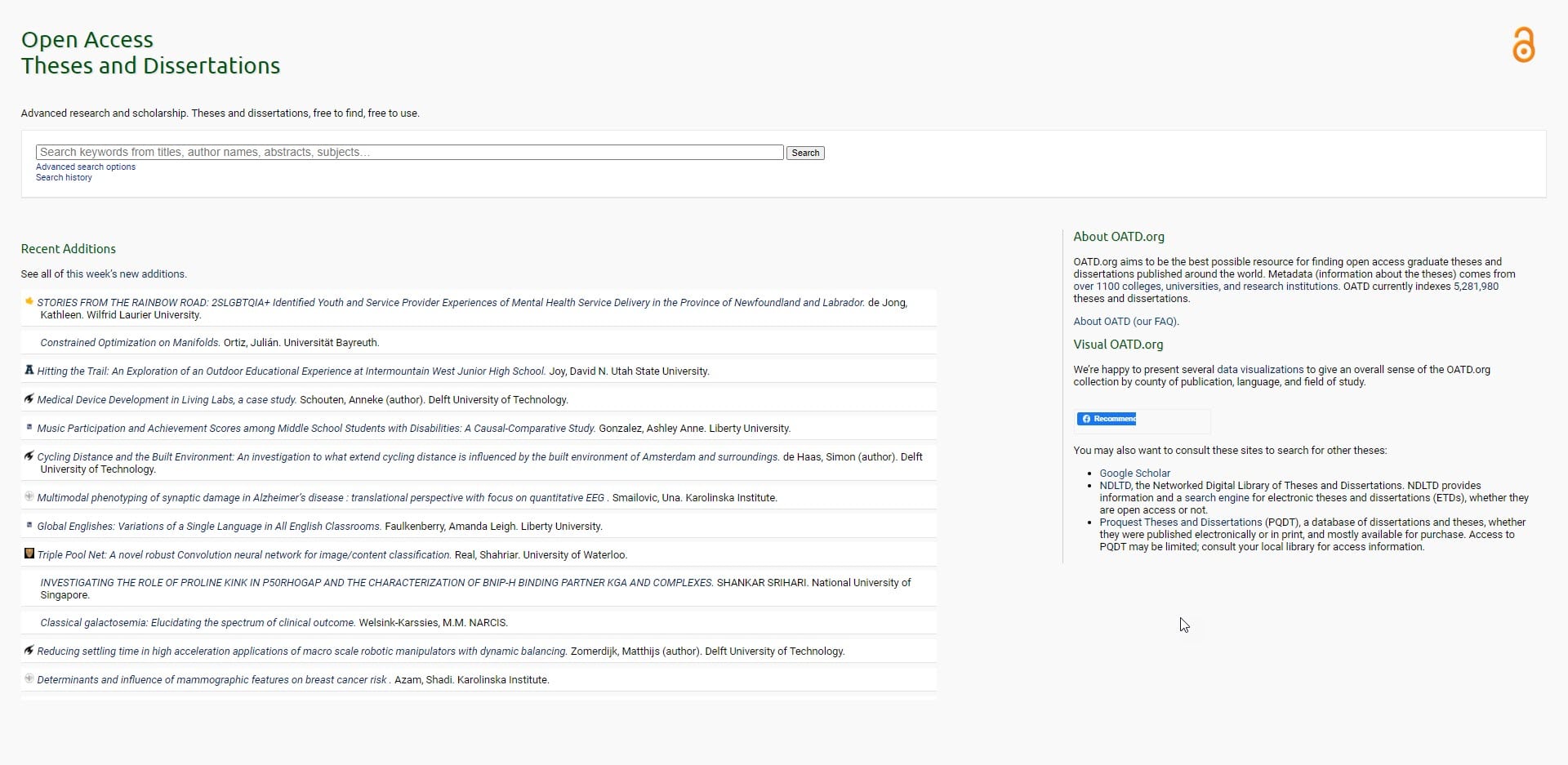
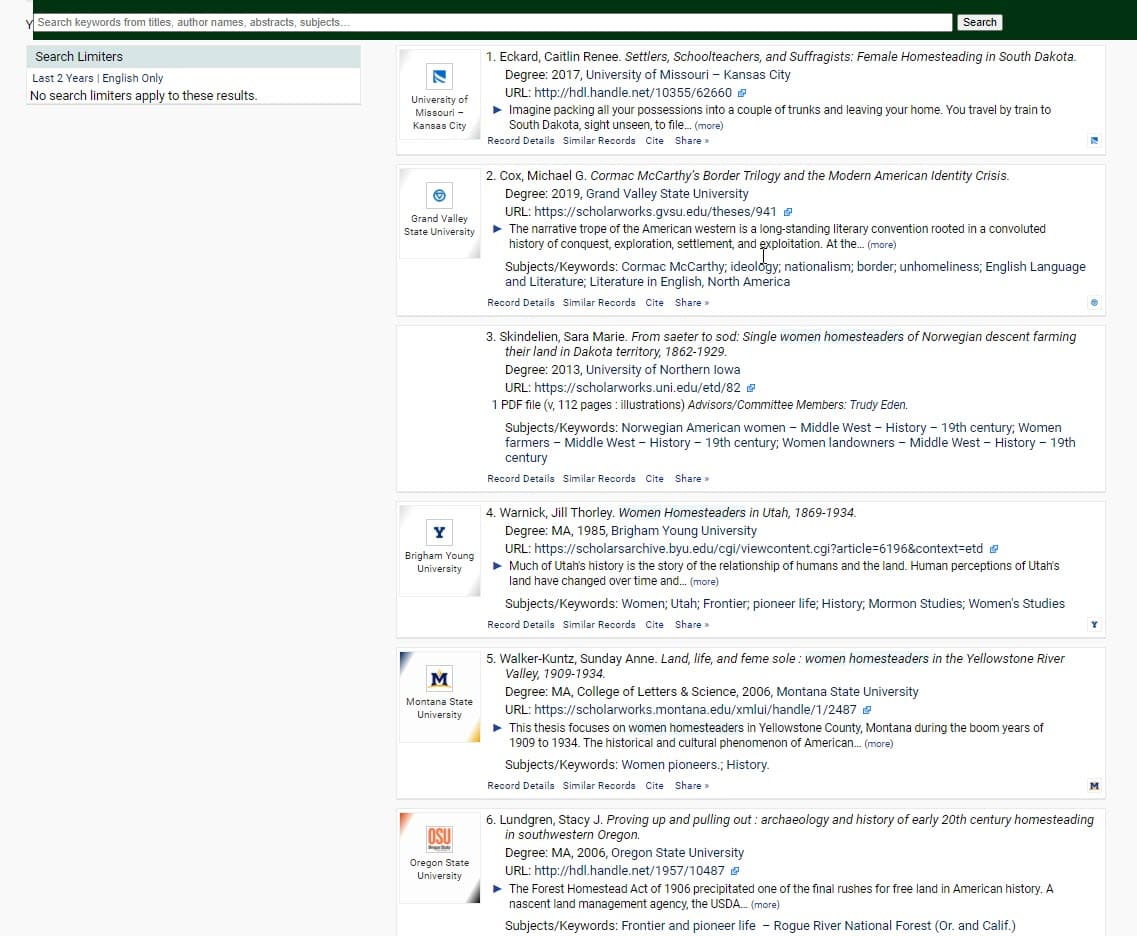
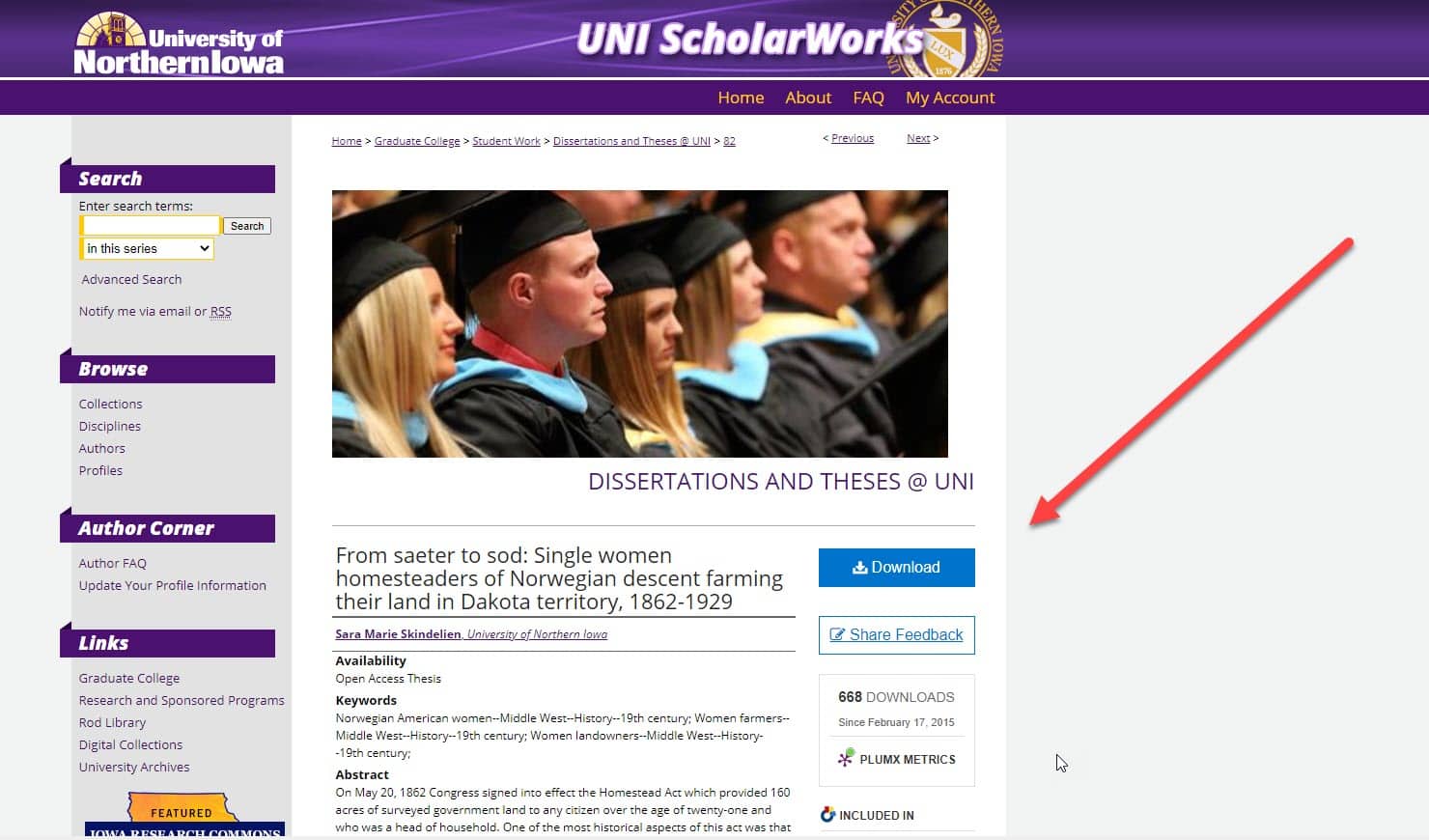
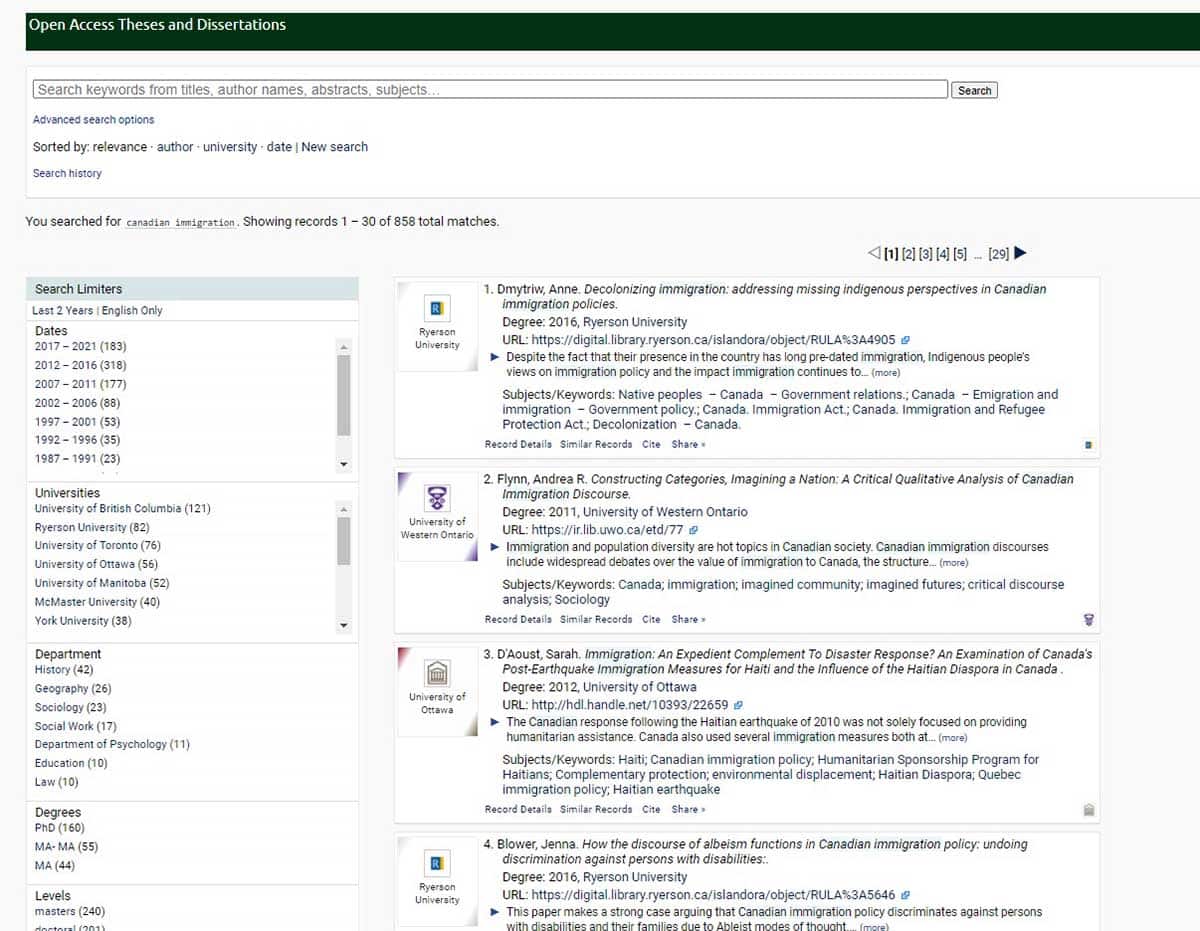
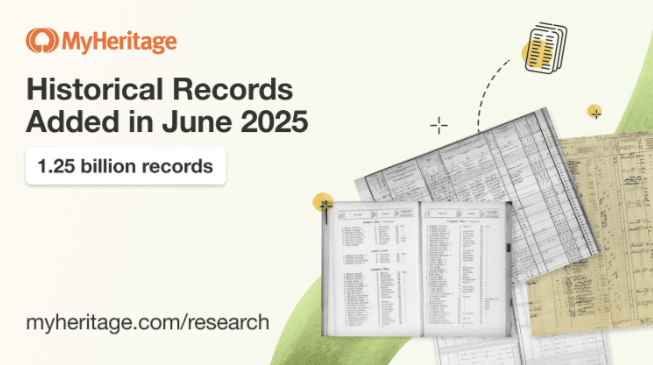

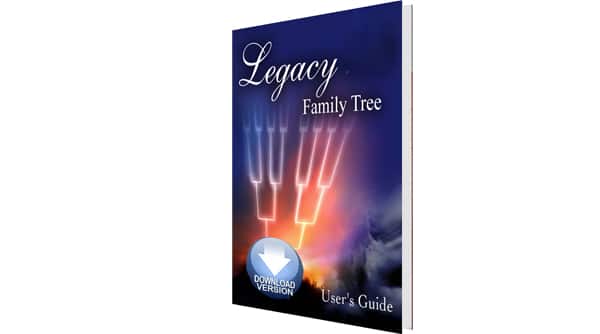
I couldn’t agree more about dissertations. Earlier this year I got my first clue in a nearly 30 year brick wall from a dissertation written in 1982. It’s certainly worth a look. Thanks for the article!